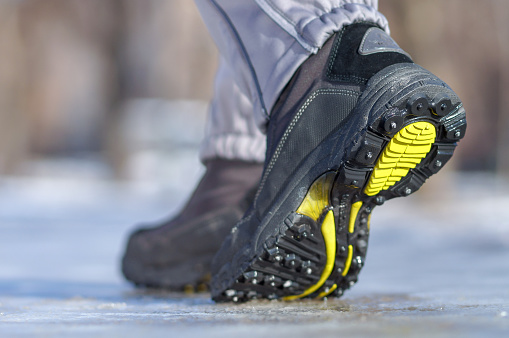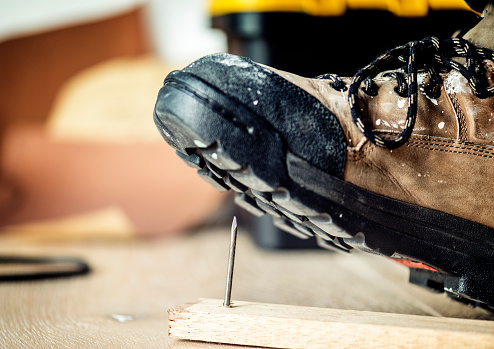As one of the personal protective equipment, safety shoes play a vital role in the personal protection of workers in the workplace. No matter what kind of industry you work in, safety issues are always the most concerning the topic. Staff must wear personal protective equipment as required, such as safety helmets, safety glasses, safety gloves, etc. Industry and construction, believe that the importance of safety shoes in the workplace is self-evident. A good pair of safety shoes can reduce the risk of your feet being injured in the workplace.
When we think of safety shoes, we probably think of very bulky shoes. However, safety shoes come in a variety of styles, and they have different functions for different protections that need to be provided in different working environments.

1. Protection against falling objects and flying objects
In the workplace where workers carry heavy objects or operate machinery and vehicles, dangers may occur at any time. People and objects move around, and maybe a small operating error, a falling object hits the feet directly or indirectly, and there will be major injuries. If you work in such a workplace, a pair of steel-toe safety shoes can effectively prevent foot injuries and is the best protection.
2. Prevent sharp objects from piercing
Some workers need to work in a workplace full of sharp objects, or the sharp tools used will be placed on the ground to block the path, and workers may accidentally step on and stab their feet. In this case, soft-soled shoes may not provide adequate protection. Safety shoes with thick soles protect workers from stepping on sharp objects.

3. Prevent slipping
Slips and falls are common causes of injury and can happen in any workplace, especially when working on wet and slippery surfaces. The most common measure to prevent slipping is to wear non-slip safety shoes. Non-slip soles provide a stable foothold for smooth movement on slippery surfaces.
4. Prevent electrical hazards
If you are engaged in electrical work, you will face various potential risks. Electric shock or buildup of static electricity can cause sparks under certain circumstances. Shock can be caused by a buildup of static electricity while working on live wires with current flowing through them. To reduce the chance of an electric shock accident, wear non-conductive shoes made of leather, rubber, or other non-conductive materials. In situations where it is necessary to prevent static build-up, anti-static shoes can be worn to reduce the amount of static build-up on the body and prevent sparks.
5. Prevent burns
Burns from materials such as fire, chemicals, cement, etc. while working can also happen. Wearing safety shoes made of durable materials can prevent burns from molten metal splashes, chemical splashes, and other dangerous substances that can damage the skin of the feet.
6. Protection from extreme weather
Cold weather can lead to injuries such as hypothermia or frostbite that cannot be ignored. People who work outside in winter and employees who work in wet or refrigerated environments are at risk. To work smoothly in extreme weather conditions, choose safety shoes made of appropriate materials to provide foot warmth.
7. Prevent fatigue
People who perform manual labor often stand on hard surfaces for long periods of time, which can cause muscle fatigue in the feet, legs, and other parts of the body. This can be exacerbated by wearing inappropriate shoes. Wearing safety shoes that provide proper cushioning and arch support can improve comfort, reduce muscle stress, and reduce worker fatigue, resulting in safer and more productive work.
The importance of safety footwear in the workplace becomes apparent by understanding the protection that wearing safety footwear provides a worker.
T-safety provides you with safety shoes in various styles and functions. If you have any questions, please contact us to start consulting.
Copyright © Hebei Sinotools Industrial Co.,Ltd. All Rights Reserved | Powered by  Sitemap
Sitemap